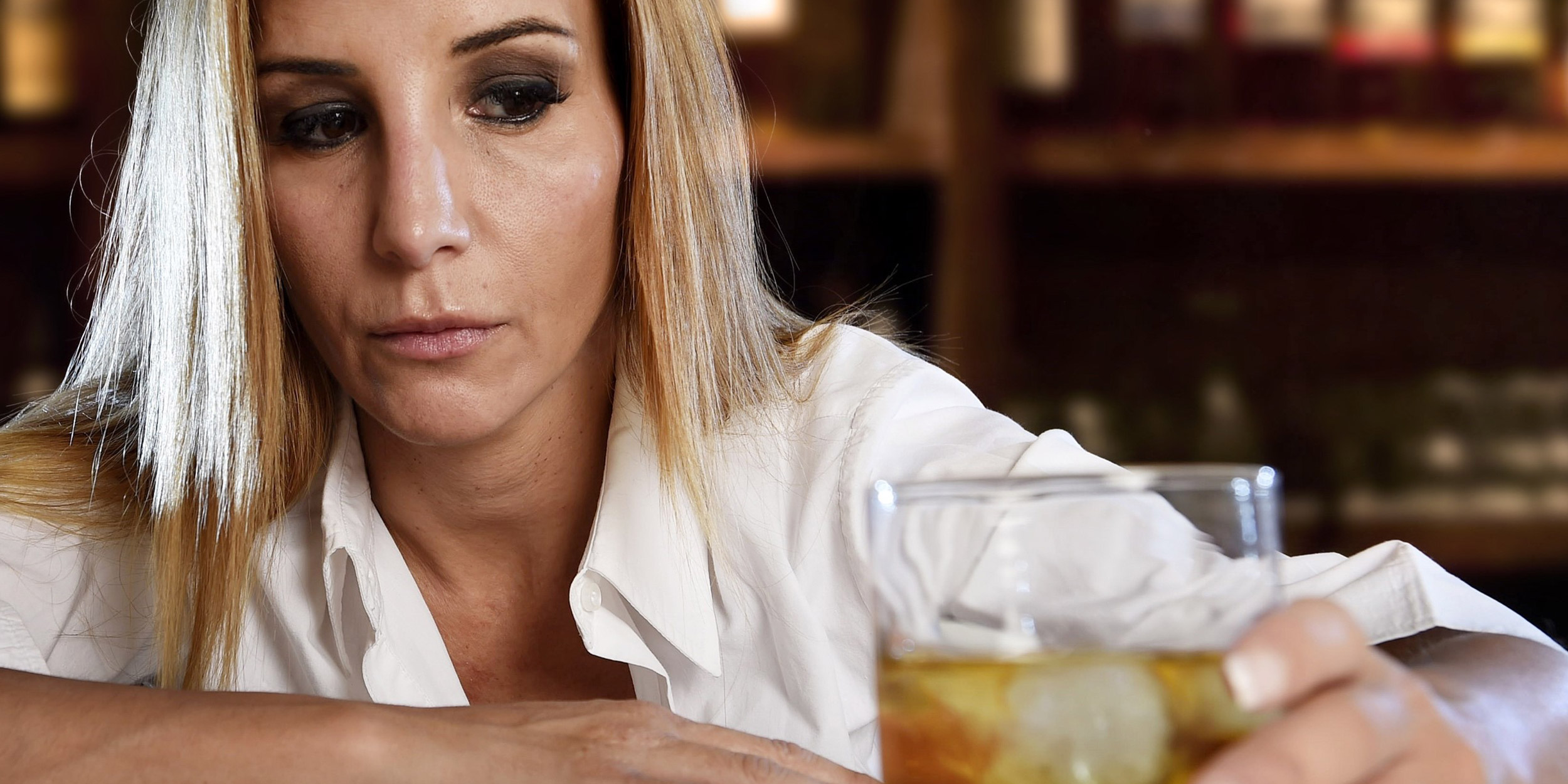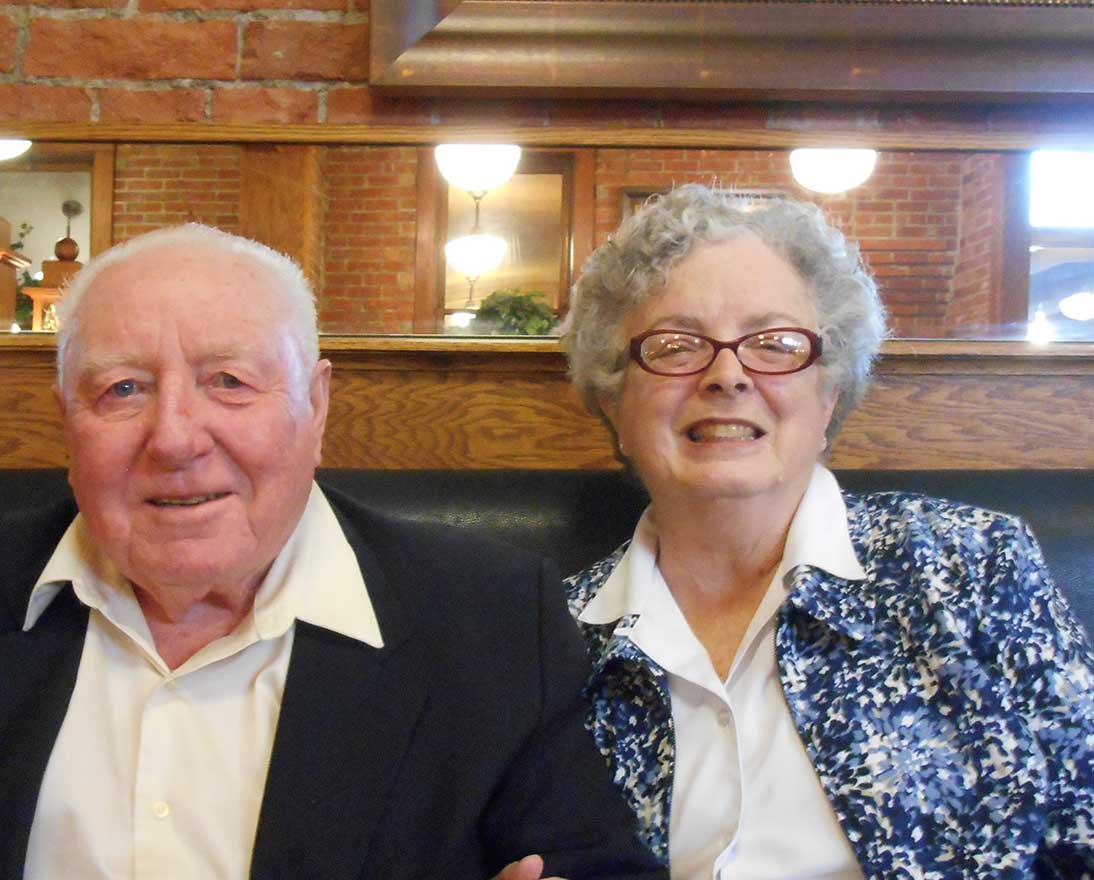…And I’m an alcoholic
PeopleArticleOctober 10, 2022
Zurich employees Karen Chacksfield and Christine Talbot battled alcohol addiction for over four decades. It had a damaging impact on their physical and mental health and almost destroyed their lives. But their stories also show that even in the darkest of hours there’s always hope.
“I would shake internally and externally; my heart would be racing. It was almost like a panic attack. I felt I was going to pass out if I didn’t have that drink.”
Christine Talbot’s alcohol addiction was so strong that even though she was close to death on several occasions, she carried on drinking. “It would have been easier for someone to have told me to stop breathing than to stop drinking,” she recalls.
Alcohol can destroy lives. It can cause mental health issues, anti-social and aggressive behavior, and extensive damage to all organs, particularly the brain, heart and liver. According to the World Health Organization, 3 million deaths every year result from harmful use of alcohol.
Alcohol can also be addictive. And despite stereotypes, it is a problem that is prevalent among women as well as men. In the U.S., for instance, 5.2 million women aged over 18 – or 4 percent of the adult female population – are alcohol dependent. This figure more than doubles to 8.4 percent for women aged 18-25.
“I never considered myself an alcoholic,” says Karen Chacksfield. “My perception of an alcoholic was a tramp in a dirty raincoat sitting on a park bench drinking wine from a brown paper bag.”
But Karen was an alcoholic. It took her almost three decades to realize her drinking did not solve any of her problems. Instead, it was intensifying them and wrecking her life in the process.
During her childhood, Karen suffered with anxiety, self-doubt and negative thoughts, but at 13 she discovered a way to temporarily remove those issues. “I went to a party and drank a bottle of Martini Rosso. I completely blacked out. But I remember thinking it was good fun and that I wanted to do it again.”
Karen did do it again and again throughout her teens, and soon became a binge drinker. “I didn’t have a pause or a stop button,” says Karen. “I would think to myself, ‘I’ve got work in the morning, I should stop.’ But it would make me feel anxious and I would need to continue drinking.”
Alcohol the confidence booster
As with Karen, Christine made the mistake at a young age thinking alcohol could solve her problems. “For me, alcohol was a confidence booster,” she explains. “I was a very shy girl but when I had a drink I was like ‘wahey let’s party,’ and I was able to dance and socialize.”
In her hometown of Blackpool in north-west England, Christine worked for a company where it was common to drink alcohol at lunchtime. “I thought it was the norm because everyone was doing it. There was also drinking on Friday and Saturday nights, the pub quiz on a Tuesday, but I didn’t see it as a problem.”
Studies show women start to have alcohol-related problems sooner and at lower drinking levels than men. This is because after drinking the same amount, women will normally have higher blood alcohol levels than men, due to having a lower body weight, a lower capacity to metabolize alcohol, and higher proportion of body fat.
For Christine, her alcohol dependency was about to go to a new level. “I went out one night but had work the next day. I woke up and went downstairs and there was a bottle of beer on the dining table and I just drank it. I don’t know why, because I had never done it before, but it made me feel better and I thought ‘that’s a quick fix for a hangover.’”
But one beer soon became two. She would go home on her lunch break for another beer because she was “starting to rattle and felt shaky.” If she couldn’t go home, Christine would take alcohol into work hidden in soft drink bottles or milk cartons, along with a plentiful supply of chewing gum and mints.
“I was drinking morning, noon and night. I even took alcohol to bed with me because I’d wake up feeling sick and shaky and I needed a drink to keep me going.”
Alcohol withdrawal
Shaking is often a visible symptom of alcohol withdrawal. Heavy drinkers adapt to the presence of alcohol, which depresses the central nervous system, slows brain activity and reduces energy levels. But as alcohol leaves the body, the brain becomes flooded with activity that results in the nervous system becoming hyperactive, causing alcohol tremors or shakes.
Christine’s condition was deteriorating. “I would spill my first can of beer because my hands were shaking so much. But once I got some beer inside me, the shaking would stop. It was the only way I could stop the shakes,” she remembers.
She was also suffering from vivid hallucinations and showing signs of jaundice, her body and face were bloated, and she would often vomit blood. At just 24, her condition was life-threatening and she underwent a medically assisted detox at her local hospital, which lasted over a week.
But within a few days she was drinking again. “I knew my actions were hurting my family, which is why many people think alcoholics are selfish and that they would stop if they wanted. But that’s not true,” says Christine. “I hated seeing my family upset, but I was helpless because physically and mentally I could not stop drinking.”
Christine was in detox three more times and on each occasion, she returned to alcohol. She was in detox for a fifth time in October 2006, aged 30. But this time was different.
“I came out of hospital and waited for the craving to return. But it didn’t. I just didn’t want to drink a beer. Maybe it’s because I was told I was close to death, or due to my worries about my dog Perri. I really don’t know. Something clicked in my mind as if I was hypnotized.”
Whatever it was, Christine has remained sober since October 14, 2006, after 12 years addicted to alcohol.
Crossing the line
Karen’s heavy drinking continued into her 30s, when two events made things worse. She became a mother to two children and lost her job. It was at this point, she says, she crossed the line from being a heavy drinker to becoming an alcoholic.
“Losing my job ruined my confidence, it absolutely destroyed me, so my drinking took off,” she says. “I’d wake up in the morning and wonder ‘what did I do, what did I say?’ I’d obsess about it. I’d think to myself, ‘no one likes me, I’m an idiot, I can’t keep a job.’ I was probably depressed, but I never went for help.”
Without support, Karen’s mental health deteriorated. “I got to the point where I felt I couldn’t do anything right. I thought, ‘I’m a rubbish mum, a rubbish wife, so what’s the point in being around?’
“I’d be indoors with my family, but I would feel so lonely, like I couldn’t connect with them. I would have this anxiety come over me. I never did it, but I felt like I needed to get a knife and cut myself to release that pressure.”
A turning point came in 2014 while on vacation in Italy. Karen went away with her friends and their children – her husband stayed at home. She was drunk for most of the trip and one night disappeared until morning. “I don't remember anything, yet I was responsible for two children aged 8 and 12 at the time. I was a complete mess, but that’s when I knew I needed helped.”
I’m Karen…
Fortunately for Karen, she had a friend who was a recovering alcoholic and he invited her to a recovery meeting in south London. “I was sat there, and they were introducing themselves. I was thinking, ‘they’re going to come around to me and I don’t know what to say?’ So I decided to copy them, and said: ‘I’m Karen, and I’m an alcoholic.’
“I immediately burst into tears. I sobbed and sobbed and sobbed. A lady called Sue came and spoke to me and I immediately knew she was someone who understood how I feel and how I think.”
Sue became Karen’s sponsor, which is an empathetic mentor or a guide who has been in recovery. Sue asked Karen to write down a “gratitude list” of 10 things that she was grateful for.
“I thought, ‘what have I got to be grateful for?’ Looking back that was so sad. I had so much, even then, a husband, children, a house, a car, a dog. But inside I was just broken.”
But since that day – October 20, 2014 – Karen hasn’t touched a drop of alcohol. The change has been remarkable and the turnaround in her life inspirational. “I used to be incredibly selfish and full of self-pity. Now, I look in the mirror and I like myself. I’m a decent person. I believe I’m a good wife and a fantastic mum. I’m kind, loving and try to think of others as much as I can. I have self-worth.”
The hardest thing
Karen’s salvation came from visiting the recovery group. But for Christine, she remains frustrated that she doesn’t know how she won her battle over alcohol addiction.
“I want to support other alcoholics, but I feel useless,” says Christine. “People want to know how I got off alcohol, but I haven’t got an explanation. My story’s not inspirational.”
But it is. After learning how to live her life being sober, Christine is determined to live every day to the fullest. Her “lost decade” due to her alcohol addiction has given her a new zest for life, which led to her leaving Blackpool in 2017 and getting married to Bri in 2020.
Karen, meanwhile, continues to attend recovery meetings twice a week and has a new sponsor called Carol. And every morning, Karen continues to write a new gratitude list, say a short prayer, meditate and then contact the four women that she sponsors through their recovery.
The fact that both Christine and Karen came through their ordeals is a testament to their inner strength. Their stories are also a warning of alcohol’s potentially dangerous impact on both your physical and mental health. And of the need to seek support no matter what may be troubling you.
“The hardest thing is to put your hands up and say, ‘I need help,’” says Karen. “I should have done it years earlier.”



